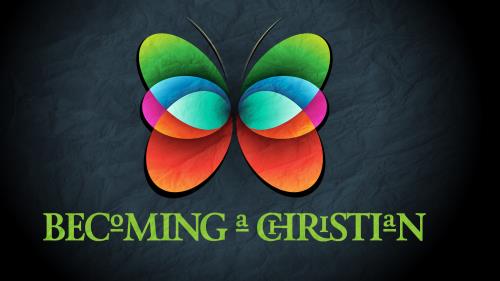-
A Father's Grief Series
Contributed by Clyde Grimes on Nov 5, 2002 (message contributor)
Summary: #4 of 4 sermons dealing with David’s sin with Bathsheba, its effects, and David’s ultimate restoration.
A Father’s Grief
I. The Consequences of Sin: Pain and Suffering
A. Sin affects the sinner
B. Sin affects those around the sinner
II. The Results of Repentance: Forgiveness and Hope
III. Our Response Toward Those Who Have Fallen
A. Present God accurately
B. Present God lovingly
Introduction
A cartoon in a magazine pictured a man watching the TV news as the announcer said: “Today, in all aspects of life, losses outnumber gains.” Isn’t that how we often feel about our lives? I imagine that’s exactly how David felt as he was going through his grief after his sin had been exposed—in all aspects of his life, losses outnumbered gains.
2 Samuel 12:15-25 is a story of tragedy and triumph. We see the tragedy in the great fall of a great person. David was brought to terrible grief by his terrible sin. However, it is also the story of triumph. As awful as David’s heartache was, he refused to allow it to become the defining moment of this life.
We will conclude our series, “When Good People Do Bad Things,” this morning. As we examine the events that take place within these verses, I would suggest that they give us insight into how we should respond in the aftermath of our failures. The writer does not hide the truth from us; rather he presents an accurate picture of what our sinful decisions cost us. He shows us the pain associated with sin, but he also demonstrates how we can rise from our suffering—by persevering in faith through tragedy to new life. It is our faith in the forgiveness of God that enables us to experience hope even in the midst of great sorrow.
If you have not done so already, I invite you to turn in your Bibles to 2 Samuel 12:15-25.
The Consequences of Sin: Pain and Suffering
This passage clearly describes the devastating effects of sin. As I mentioned last week, sin is destructive by nature and it leaves its mark on the one who chooses to walk in its path in some way. There are always consequences associated with sin. We are forgiven by God when we seek His forgiveness and are saved from what we deserve, yet we still suffer some of the effects of sin. Whenever we choose to disobey the commands of God, pain and suffering are the consequences we must experience.
Before we look at this a matter of the consequences of sin any further, I feel an obligation to address a related matter. While it is clear that pain and suffering will result from our disobedience, that does not mean that all pain and suffering is directly related to individual sinfulness. What I mean is simply this: we cannot assume that when a person is going through a difficult period in his/her life—be it sickness, financial trouble, unemployment, or whatever—that this is necessarily indicative as a consequence of personal sin.
I know there are some who would preach that the source of all the problems we face is directly related to some failure in our lives. If we just seek God’s forgiveness for whatever we have done, then He will lift His curse from us and we will find release from all our troubles. This type of reasoning has led many to lead lives of defeat and constant guilt.
Jesus had to deal with this kind of thinking in His day. One time the disciples asked Him why a particular man had been born blind. They assumed that it was the result of some sin, either committed by the man or by his parents. Jesus corrected the disciples’ prejudice by informing them that the man’s condition had nothing to do with sin—his blindness was for the purpose that the work of God might be displayed in his life (John 9:3). We should also keep in mind that Jesus warned his disciples, “In this world you will have trouble” (John 16:33). Let’s be careful not to assume that all personal trouble is the result of personal sin.
While not all pain and suffering is the result of sinfulness, our sinfulness will result in pain and suffering. It is an axiom of life that we cannot escape. It is also important to note the extent to which the consequences of sin reach. Sin affects two groups of people.
Sin Affects the Sinner
First, sin affects the sinner. I realize that it doesn’t take an Einstein to figure that one out. We have all experienced the effects of personal sin.
Some of those effects have to do with our relationship to God. Whenever we choose to do it into our own way—to ignore God and His word—then we place a barrier between ourselves and God. Our fellowship with Him is broken. Sin separates us from intimacy with God because God cannot be in the presence of sin. When we are deliberately at odds with God, we should not expect Him to be moved by our prayers, impressed by our works, or predispose to our needs.

 Sermon Central
Sermon Central



